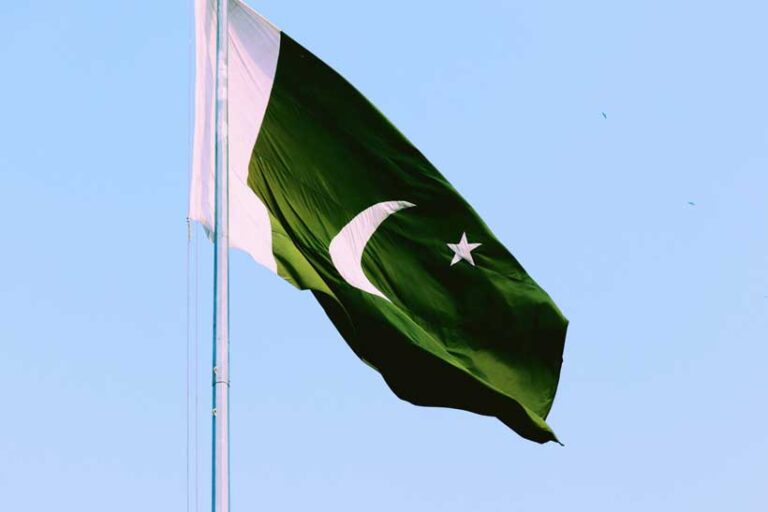This article is intended to examine the State Department statement issued on June 29, 2024, “The relationship between the United States and Pakistan has never been stronger.” Pakistan shares a complex history of good partnership and tension with the United States. The relationship reached its zenith in the 60s during the Cold War through the formation of an alliance marked by strategic importance and geopolitical considerations. The warmth of the alliance was periodically strained, highlighting the fragility of trust between the two countries, as exemplified by the Pressler Amendment of 1985, triggered by concerns over Pakistan’s nuclear ambitions. Another change occurred in the early 21st century after September 11, 2001. The tumultuous past marked by cooperation and conflict is now on a steady trajectory of improvement, with hopes for future cooperation and closeness. However, recent events suggest that the relationship may return to improved cooperation and harmony.
To begin with, U.S.-Pakistani cooperation was closely tied to a shared interest in containing the Soviet presence, and Pakistan also benefited from a favorable geographical location. That cooperation was fraught with tensions and hampered by nuclear concerns is evidence that trust between the two countries was not always smooth sailing.
The next change came after September 11, when Pakistan joined the United States in the War on Terror. As a frontline state in the US-led war on terror, Pakistan received significant military and economic aid in return for supporting counterterrorism efforts, especially along its long border with Afghanistan. However, Pakistan’s perceived support for certain factions within the Taliban led to accusations of double-dealing against Pakistan, further straining US-Pakistan relations.
Despite tensions, security cooperation between the two countries remains a cornerstone of Washington-Islamabad relations. Joint military exercises and large-scale foreign military sales are prompted by mutual interests in fighting terrorism and maintaining regional stability. Heavy U.S. investments in Pakistan’s defense capabilities despite periodic turmoil are a sign of strategic alignment.
In the economic sphere, trade and investments have expanded due to Pakistan’s efforts to strengthen its economic infrastructure and liberalization, making it the largest source of foreign direct investment while working closely in the areas of energy, trade and investment, health, climate change, regional stability and counter-terrorism. In the area of trade and investment, relations continue to expand by organizing trade relations between companies, facilitating business opportunities and providing technical assistance to build commercial partnerships.
Current diplomatic developments reflect a diversity of partnerships with shared goals of economic prosperity and regional stability. Current examples include the U.S.-Pakistan Knowledge Corridor, which aims to build capacity in both countries through education and exchange programs.
The United States has sent more than 99 million doses of COVID-19 vaccines to Pakistan, and USAID has worked with Pakistani institutions throughout the pandemic to build detection and treatment capabilities. In the area of education, Pakistan has been a trusted ally with access to educational opportunities through the world’s largest Fulbright program, run by the American Education Foundation Pakistan with support from both the U.S. and Pakistani governments.
With regard to counterterrorism and internal security, Pakistan has taken certain steps against militant and UN-designated terrorist organizations as required by its National Counterterrorism Action Plan. However, the application of UN sanctions against these organizations remains quasi-legal. The United States continues to encourage and pressure Pakistan to counter these groups, while at the same time exploring opportunities to cooperate with Pakistan in areas such as counterterrorism and border security.
While the nature of bilateral relations has seen its fair share of ups and downs, today it can be asserted that Islamabad-Washington relations are on a significant upswing. The Biden administration’s National Security Strategy (NSS) emphasizes the importance of strengthening alliances in the Indo-Pacific region to outmaneuver China and contain Russia. Strengthening ties with countries of strategic importance like Pakistan remains crucial. Historically a mix of cooperation and tension, U.S.-Pakistan relations have been strained, especially after the U.S. withdrawal from Afghanistan in 2021. This shift calls for a new approach that goes beyond security concerns. With the U.S. now focusing more on great power competition than counterterrorism, Pakistan’s close relationship with China has become a key consideration in Washington’s strategy. Contrary to perception, Pakistan maintains strong ties with both China and the U.S. Ignoring Pakistan’s potential as an economic partner risks pushing it further into China’s sphere of influence. By building partnerships in areas like technology, health, climate, and education, the United States can promote stability and long-term engagement, reduce Pakistan’s over-reliance on China, and protect U.S. interests in South Asia.
In conclusion, the US and Pakistan have been bound together in an interdependent international relationship based on common strategic cooperation and political goals, despite several obstacles. However, over the past decade, both countries have shown a high interest in developing their bilateral relations and operational aspects in the areas of security, economic and social cooperation. The nature of the relationship has evolved through stages of cooperation and strategic partnership after the September 11 attacks and mutual hostility.
It is important that the United States builds a multifaceted partnership with Pakistan and supports it on economic, knowledge, IT, and climate change issues. A stable, prosperous, and progressing Pakistan is in the interest of the region and the world.

